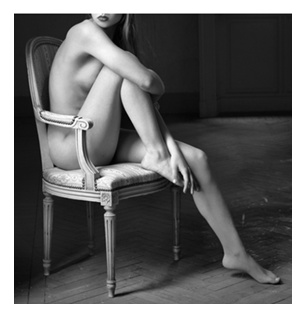You are an unremarkable woman in an unremarkable life, hurrying your children through breakfast, dropping them at preschool, impatient at the red light on mornings when you’re running late to the office, baking cupcakes for committees and cookies at the holidays for neighbors.
 You check progress reports on Friday nights and status reports on Sundays. You pay your bills on time, renew subscriptions to your husband’s magazines, never forget birthdays and anniversaries, and always pick up the dry cleaning.
You check progress reports on Friday nights and status reports on Sundays. You pay your bills on time, renew subscriptions to your husband’s magazines, never forget birthdays and anniversaries, and always pick up the dry cleaning.
You leave the spotlight to the man you married, supportive of his career ambitions, accepting when he takes his weekends with the guys, silent as he stretches out in bed and invariably lands on CNN with its news of the latest war, after which he sleeps like a baby.
And you rise to pace, longing for a different life, remembering a different life, laying claim to a different life.
*
He tells you not to comb your hair, not to refresh your lipstick, not to change a thing. “Breathe,” he says. So you take a deep breath.
He points to an Oriental folding screen in the corner of his studio. You try to remain composed, to accept the routine in this as he does, to dispel your nervousness by whispering to yourself: It’s only a drawing.
“There’s a robe on the chair back there,” he says. “You can put that on for now.”
You slip behind the screen and undress, emerging a few minutes later feeling vulnerable though you are far more covered up than when you arrived in shorts and a sweater.
He has been asking for years and you say no, over and over. You have no idea why you suddenly agree to this activity. Perhaps because your age grows accusatory. Perhaps because you feel your muscles slacken, your skin surrender its satiny texture; the years spare no one. Perhaps you simply want to know you are not unremarkable after all.
He offers the glass of wine again that you refused a few minutes earlier. You down it quickly and he pours you a second. He instructs you to sit on an antique chair and explains how he would like to pose you.
“It’s a sketch, not a painting,” he says. “Thirty minutes. That’s it.”
The calm in his voice is soothing. The alcohol is doing its part. When he asks that you remove the robe, you stand up, drop it to the floor, and resume the position you held just moments before.
He surveys quickly and you wonder what it is that he sees – a friend, a woman, a set of body parts, a daily exercise.
He shifts your right shoulder forward, tilts your head toward him, angles one knee slightly, tells you to relax your fingers.
“Good,” he murmurs, and then he gets to work.
*
Your husband is gone and the children are in college. On the back of the house is a small deck where ivy tangles itself in the rails of splintering wood. The August foliage provides a privacy screen of sorts. The sun beckons after a hard rain.
You unbutton your shirt and drop it behind you, opting for the sensation of heat on your shoulders and light on your breasts, unremarked for so many years.
Flash fiction is a very short story of anywhere from 100 to 1,000 words. This is a quick writing exercise using the prompt of “sun after rain” in a 60-minute period.
This is poignant. I actually had the opportunity to do this – only photography – about 10 years ago and really wish I would have. Now? No. Which gives me pause….if I were to look back 10 years from today, would I kind of, sort of, wish I would have captured a moment at 50?
Oh, I wish you had taken advantage of the opportunity as well, Barbara. And I know what you mean about that last question.